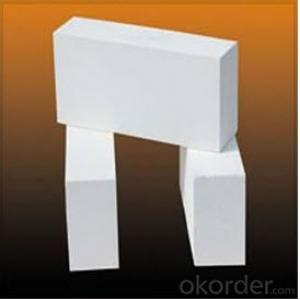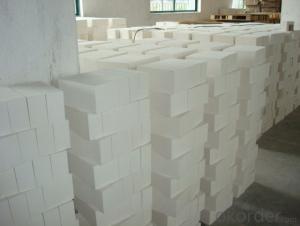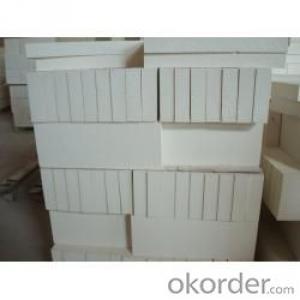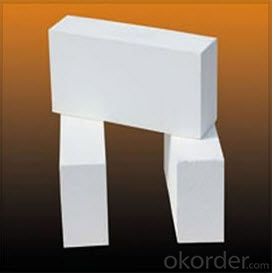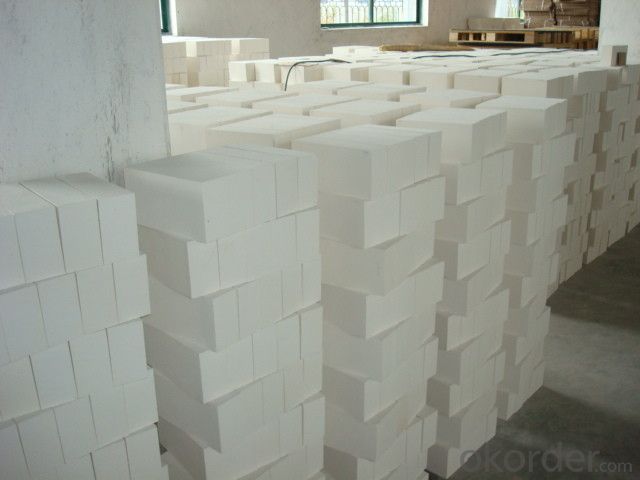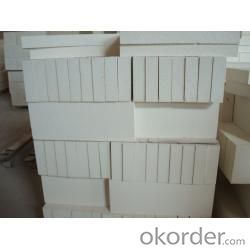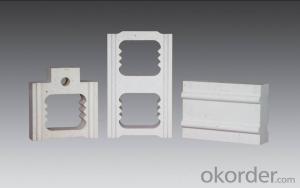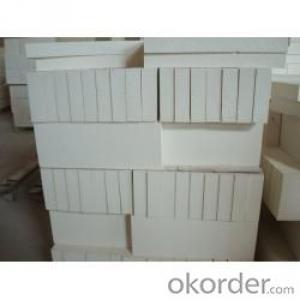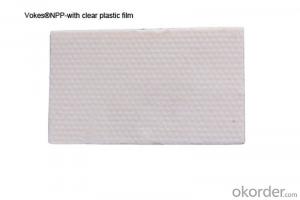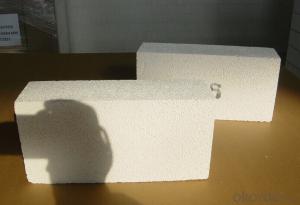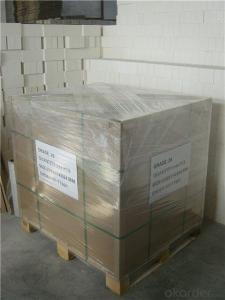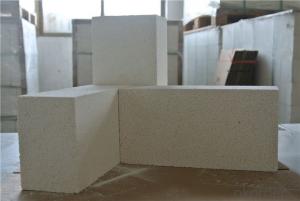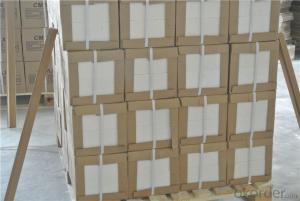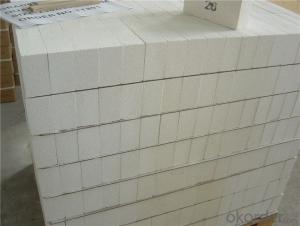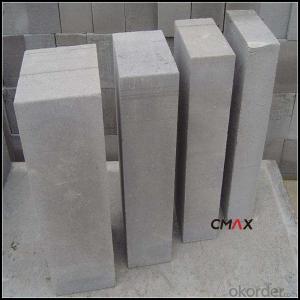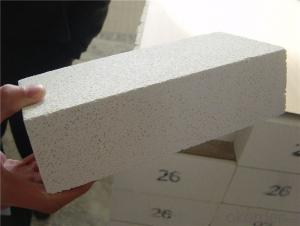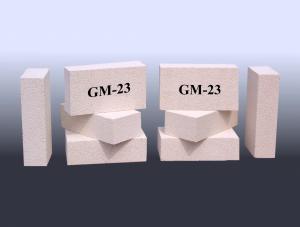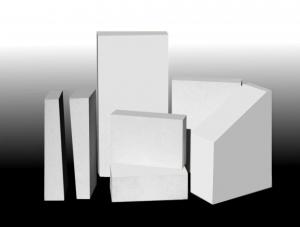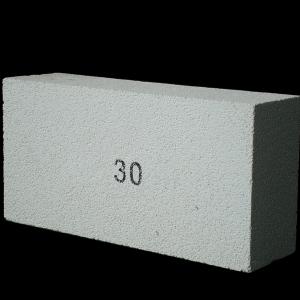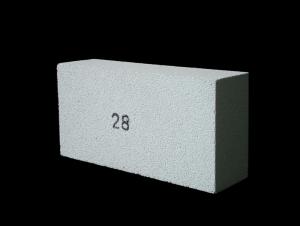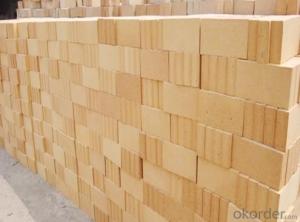Insulating Fire Brick - Refractory Fire Clay Brick for Thermal Insulation
- Loading Port:
- Tianjin
- Payment Terms:
- TT OR LC
- Min Order Qty:
- 30 m.t.
- Supply Capability:
- 1000 m.t./month
OKorder Service Pledge
OKorder Financial Service
You Might Also Like
CNBM conforms strictly to the requirements of ISO 9000 quality control system during the production. MSDS is also available if you want. The thermal insulation fire clay brick meet with the requirements of ASTM & JIS standards. So pls stay cool with our quality.
Insulating Fire Brick Technical index
Product No. | IFB70 | IFB60 | IFB50 | IFB40 |
Al2O3 | 68%-72% | 58%-62% | 48%-52% | 38%-40% |
Refractoriness (°C ) | ≥1790 | ≥1790 | ≥1790 | ≥1790 |
Bulk density (g/cm3) | 2.50-2.60 | 2.35-2.45 | 2.20-2.30 | 2.10-2.20 |
Apparent porosity (%) | 22 | 19-22 | 17-20 | 17-20 |
Cold Crushing strength (kg) | 480-510 | 450-480 | 430-450 | 390-430 |
Application
Insulating Fire Brick are used for the lining of converter, alternating current arc furnace, direct Current arc furnace and the ladle slag line, etc.
Equipment
1 unit of Ceramic Abrasive (SG Abrasive) pilot production line
2 units of Compact grain Abrasive pilot production lines
1 unit of high-end coated abrasives (abrasive cloth) production line
2 units of Boron Carbide production lines
3 large flexible crushing and sieving lines for grit production lines
2 units of 2000KVA furnaces for Boron Carbide fusion
6 units of 5000KVA-10000KVA dumping type electric arc furnaces for Brown Fused Alumina fusion
Company Advantage
(1)Long Insulating Fire Brick manufacture history: 25 years manufacturer
(2)Advanced equipment
(3)Diversification of production standards: ISO ANSI FEPA JIS ASTM
(4)Flexible payment: T/T L/C D/P D/A
(5)Professional marketing team and after-sale service
(6)Free sample
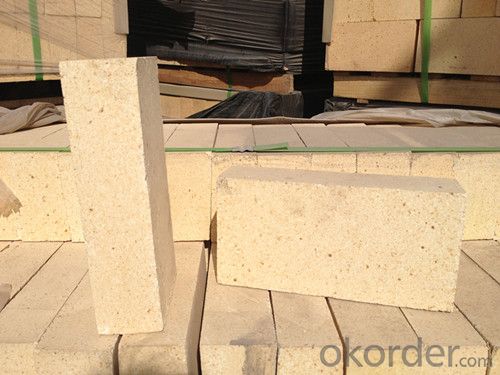
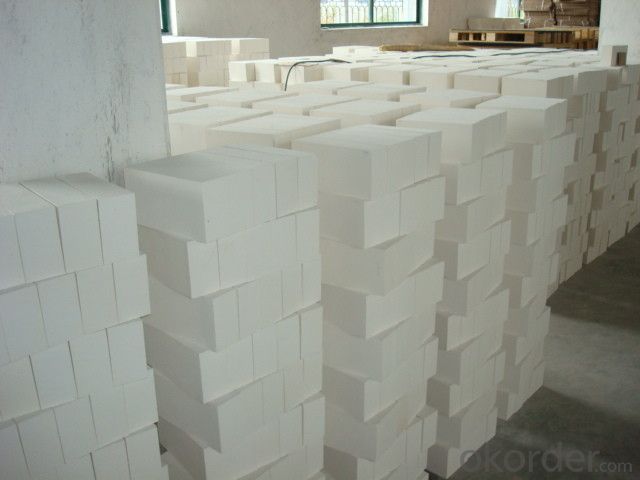
- Q: Are insulating fire bricks fireproof?
- Yes, insulating fire bricks are fireproof. They are specifically designed to withstand high temperatures and provide excellent insulation against heat.
- Q: Is it possible to repair damaged insulating fire bricks?
- Repairing damaged insulating fire bricks is indeed possible, and the method required will depend on the extent and type of damage. For minor cracks or chips, one can utilize a refractory mortar that is specifically designed to endure high temperatures and create a strong bond. This mortar can effectively fill in the gaps and restore the brick's integrity. However, if a larger section of the brick is damaged or completely missing, it may be necessary to replace the entire brick. In such a scenario, the damaged brick must be cautiously removed, and a new one can be installed with the appropriate refractory mortar. It is crucial to ensure that the repaired or replaced brick adheres to the original specifications and quality to guarantee proper insulation and structural integrity. It is highly recommended to seek advice from a professional or carefully follow the manufacturer's guidelines for the specific repair process.
- Q: Can insulating fire bricks be used for insulation in hot water tanks?
- Indeed, insulating fire bricks are suitable for insulating hot water tanks. Their superior thermal insulation properties deem them an optimal selection for such purpose. By utilizing these bricks, heat loss from the hot water tank can be efficiently prevented, consequently prolonging the water's temperature retention. Furthermore, these bricks exhibit exceptional durability and can endure high temperatures without fracturing or shattering, rendering them a dependable option for hot water tank insulation.
- Q: Can insulating fire bricks be used in kilns or furnaces?
- Certainly! Kilns or furnaces can indeed utilize insulating fire bricks. These bricks are purposely constructed to endure elevated temperatures and thermal shock, rendering them exceptionally suitable for kilns or furnaces. Their remarkable insulation capabilities aid in heat preservation and enhance energy efficiency. Moreover, these bricks are lightweight and simple to install, hence their widespread preference for lining kiln or furnace walls and floors. All in all, insulating fire bricks present a dependable and efficient means of upholding high temperatures and guaranteeing optimal performance in kilns or furnaces.
- Q: Can insulating fire bricks be used in the construction of glass melting tanks?
- Yes, insulating fire bricks can be used in the construction of glass melting tanks. Insulating fire bricks are specifically designed to withstand high temperatures and provide excellent insulation properties. This makes them ideal for use in glass melting tanks, where extreme temperatures are required to melt the glass. The insulating properties of these bricks help to minimize heat loss and maintain the desired temperature within the tank, resulting in more efficient and cost-effective glass melting processes. Additionally, insulating fire bricks are durable and resistant to thermal shock, making them a reliable choice for the construction of glass melting tanks.
- Q: Are insulating fire bricks resistant to molten metals?
- Insulating fire bricks, in general, exhibit resistance to molten metals. These bricks are composed of refractory materials with high melting points and exceptional thermal insulation properties, rendering them appropriate for high-temperature scenarios involving molten metals. The insulation capabilities of these bricks serve to curtail heat transfer, thereby preventing the conduction of heat from the molten metal through the brick. Furthermore, the refractory materials employed in these bricks possess minimal thermal expansion, enabling them to endure the thermal shock that may arise upon contact with molten metals. However, it is important to acknowledge that the resistance of insulating fire bricks to molten metals may vary based on factors such as metal type, temperature, and duration of exposure. Hence, it is advisable to consult the manufacturer or a professional to ascertain the suitability of insulating fire bricks for the specific application involving molten metals.
- Q: Do insulating fire bricks have a high resistance to creep?
- Insulating fire bricks possess a notable resistance to creep, indicating their ability to resist deformation over time when subjected to a consistent load or stress. Their design enables them to endure high temperatures and retain their form and integrity despite prolonged exposure to heat. These bricks are composed of lightweight refractory materials like clay, which exhibit low thermal conductivity and exceptional resistance to thermal shock. The amalgamation of these characteristics empowers insulating fire bricks to withstand creep and uphold their structural stability, even in the most challenging and extreme circumstances.
- Q: Clay insulation bricks insulation, brick and ordinary clay brick, fireclay, brick distinction, and its use? Thank you
- Thermal insulation brick is a new type of energy-saving building insulation technology with inorganic composite material as the main material. It is an ideal technology to replace the traditional wall insulation.
- Q: Are insulating fire bricks resistant to cracking?
- Insulating fire bricks are specifically designed to have a high resistance to cracking. They are made from lightweight ceramic materials that have low thermal conductivity and high thermal shock resistance. These properties enable the bricks to withstand rapid temperature changes without cracking. Additionally, insulating fire bricks undergo a firing process that strengthens their structure and minimizes the risk of cracking. However, it is important to note that extreme thermal shock or physical impact can still potentially cause cracking in insulating fire bricks, so proper handling and installation techniques should be followed to ensure their longevity and effectiveness.
- Q: Do insulating fire bricks have a high thermal stability?
- Yes, insulating fire bricks have a high thermal stability. These bricks are designed to withstand high temperatures without deteriorating or losing their insulating properties. They are made from high-quality refractory materials that can withstand extreme temperatures, making them ideal for applications where thermal stability is crucial. Insulating fire bricks have low thermal conductivity, which means they can effectively trap heat and prevent it from escaping. This property allows them to maintain stable temperatures in environments where heat retention is essential, such as furnaces, kilns, and other high-temperature industrial processes. Overall, insulating fire bricks are known for their excellent thermal stability, making them a reliable choice for applications that require insulation and protection against high temperatures.
Send your message to us
Insulating Fire Brick - Refractory Fire Clay Brick for Thermal Insulation
- Loading Port:
- Tianjin
- Payment Terms:
- TT OR LC
- Min Order Qty:
- 30 m.t.
- Supply Capability:
- 1000 m.t./month
OKorder Service Pledge
OKorder Financial Service
Similar products
Hot products
Hot Searches
Related keywords
